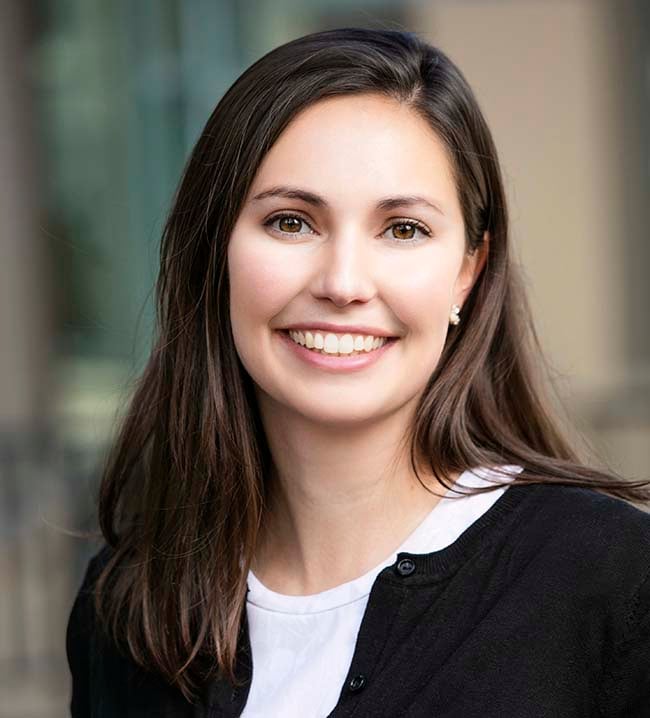When Alicea Wu first approached Berkeley Haas, she was particularly attracted to one key Haas Defining Principle: Students Always. After working as a physician for six years, in both primary and urgent care, she felt ready to learn more about the business side of medicine, and was thrilled to join the Evening & Weekend Berkeley MBA Program.
But after her mother was diagnosed with cancer and passed away three months later, Alicea was also ready for a career change—away from the 24/7 demands of patient care to a job with more flexibility for family needs.
She found what she was looking for at biopharmaceutical firm Gilead Sciences where she now works as the Associate Director of Drug Safety & Public Health. Gilead first came to her attention through a company trek set up by the Haas Healthcare Association.
Understanding organizations better on a higher level
“Haas has relationships with many Bay Area companies, and it’s very easy for students to explore career options,” says Alicea. “Not only did I get to know Gilead, I realized that there are many options for physicians outside of clinical practice.”
After expanding her career horizons and landing her new job, Alicea continues to apply at her new position what she’s learning in the part-time MBA program.
“My MBA studies have helped me understand organizations better on a higher level,” she says. “With the foundations of finance, operations, and statistics under my belt, I see my job in a different light. It is not just a list of to-do's—I can see how each of my to-do's fits into the bigger picture and how it helps the organization on a high level.”
"Changing industries is certainly possible"
Two organizational behavior courses, Leading People, taught by Prof. Ming Leung, and Power and Politics in Organizations, taught by Prof. Edward Kass, have also been helpful. “In the past, my one-on-one conversations with colleagues have been direct and to the point. I imagine many people are like this when things get busy,” she says. “One of the things I learned in the organizational behavior classes is that there are a lot of subtleties in the way you communicate that change the tone and connotation of what you say. Now, I’m better at asking for what I need from co-workers or vocalizing how I need help.”
Alicea’s primary advice for other career changers is to keep an open mind when looking at potential new jobs. “Sometimes we think we are only qualified for certain jobs or fields of work, but it’s important to not be afraid to try something new. When I applied for my current job, I had no previous experience in the pharmaceutical industry, but I knew I was a fast learner. And Haas does a great job of teaching skills that are really applicable to any industry, so changing industries is certainly possible.”









